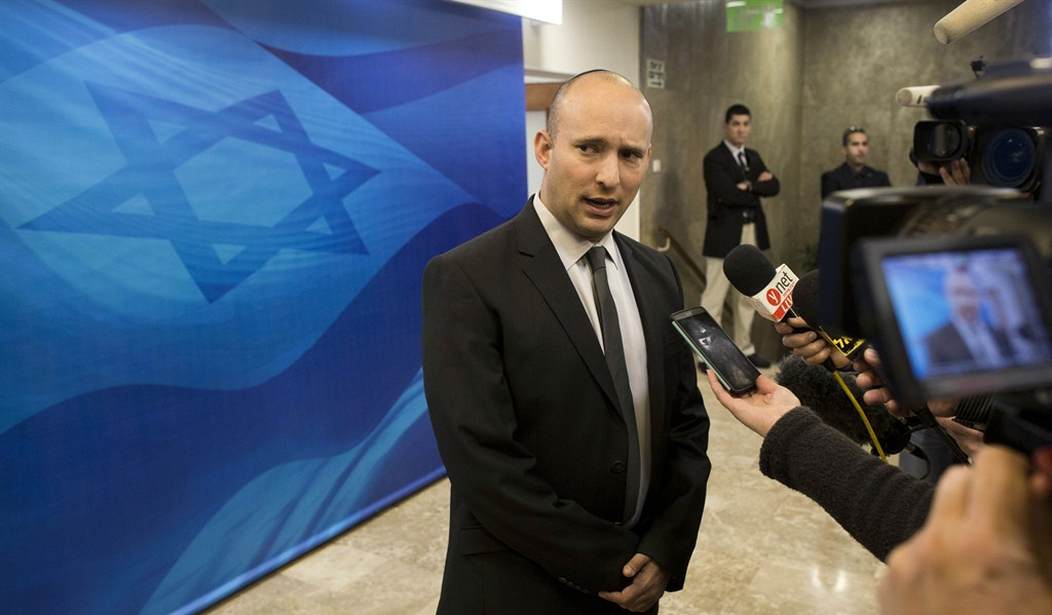For a country of news junkies, Israelis sure have had a lot of news the past week. Maybe I am projecting, and admittedly I don’t ride buses that much anymore, but it’s not uncommon to be on a public bus at the top of the hour and have the driver turn up the volume of the radio so all can hear. Unlike the US and other representative democracies with fixed terms for their political leaders, Israel’s parliamentary democracy “allows” for the up-until-now unprecedented four elections in two years. It also “allows” for the scenario that the outcome of these votes are indecisive and tenuous, and makes it unclear that a new government will emerge, even down to the breathtaking Knesset vote to do so.
Watching the Knesset vote, I felt like I was watching a close basketball game, with two and three-point shots scored alternating by the home and visiting team, in our case the incoming coalition and the opposition. The vote was a roll call of all 120 members and went back and forth until it was clear that it was not going to flip or flop any longer. And though it was anticipated that the new government would win, the paper-thin margin of 60-59, while a majority, was astounding all the same. The difference with a basketball game is obvious: there’s a winner and a loser. Yet in the Israeli political system, the opposition made it clear from the moment the last vote was cast, that it exists to overturn that vote. Already this week, two votes of no confidence have been called.
The news that’s unfolding is as divergent as the parties are that make up the new coalition, which is news in and of itself. It is an unlikely coalition of eight parties ranging from left to right, including an Arab Islamist party, and any number of parliamentarians now sitting in a government with people and ideologies with whom they said they’d never sit in a government. Which parties ally with others and on what issues is not clear cut. There’s a right-wing party politically that said they’d never sit in a government with an Arab party, but which is socially liberal and opposes religious coercion and many of the underpinnings of the Jewish character of the state. One would think that the Arab party would be in the left-wing camp which it is regarding peace with our neighbors. However, as an Islamist party they not only reject, but openly contradict, many of the knee-jerk social policies of the left-wing parties. And this continues on multiple levels in many dimensions.
Recommended
Other news was that the formal introduction of the new government before the vote was as disrespectful as it was. Dozens of opposition lawmakers heckled incoming Prime Minister Naftali Bennett, showing a side of Israel that was once common, but is not now, and is never acceptable. It debased the shouting lawmakers, former Prime Minister Netanyahu, and the Knesset as an institution.
The juxtaposition of tone of the remarks by incoming Prime Minister Naftali Bennett and outgoing Prime Minister Netanyahu could not have been more different. Bennett expressed hope, speaking of unity, looking forward to a bright future. Netanyahu basically said the sky is falling, that without him Israel is entering doomsday. For most Israelis, whether we like Netanyahu or not, we know that Israel is bigger and greater than any one person. As incoming Foreign Minister Yair Lapid said, the behavior of the opposition demonstrated in fact how much it was time for change.
After the new government was elected, there was a quick handshake between former Prime Minister Netanyahu and new Prime Minister Bennett. That’s where the courtesy ended. Netanyahu refused to be part of the tradition of a formal public official handing over of the office (or official residence, in which he’s still living). Rather than providing any meaningful transition as was done for him, as has always been done, and is for the good of the country, Netanyahu gave Bennett only a cursory 25 minutes on Monday before running off to an opposition meeting to discuss how to topple the new government.
Even Netanyahu’s archrival, Shimon Peres, put differences aside following his dramatic loss to Netanyahu in 1996, while the country was still healing from the assassination of Prime Minister Rabin a few months earlier, and played the role of statesman.
Finally, given how improbable it is that these eight widely different parties came together, much less that they might form a stable coalition, each day we wake up and the government hasn’t collapsed is news in of itself. Nobody knows how long the coalition and government will remain stable, to the extent that a government with a mandate as slim as this one is stable. But every day it does is newsworthy.
What have Israelis learned from this and what do we have to look forward to?
Change – Israel is bigger than one person
Israelis went to sleep Sunday absorbing (many celebrating) the news that after 15 years, 12 consecutively, Benjamin Netanyahu was no longer their Prime Minister. We saw the first cabinet meeting of the new government broadcast live on national TV. We saw that meeting begin with Israel’s new and first religiously observant Prime Minister invoke an age-old blessing, albeit with a modern political undertone: “Blessed are You, Lord our God, King of the universe, who has kept us alive, sustained us, and brought us to this season.” The new leaders got right down to business.
We awoke Monday to a new, post-Netanyahu era, realizing the sky had not fallen (yet) and that it was not a dream, or nightmare depending on one’s perspective. The unprecedented and unique diversity of the coalition raises question as to its stability. That diversity seemed to underscore that Israel is bigger than one person on a few levels. First, the simple fact that Naftali Bennett is the new Prime Minister, having unseated who many both affectionately and deridingly called “King Bibi.” It was a bloodless coup.
Also underscoring the point that Israel is bigger than one person, is that eight different and divergent political parties with vividly diverse ideologies came together, expressing a determination to rise above their differences and work for the good of the country. Unity has to be the sum of more than one. The largest of these parties only has 17 seats out of the Knesset’s 120 members, just under 15%, and the smallest only has four. If anything highlights that Israel is bigger than one person, it is that the new coalition has 61 members of eight divergent parties, each literally putting their political future – and the well being of the country – on one another. This gives new meaning to the idea that a chain is as strong as its weakest link, because if one party, or just one or two people, within the governing coalition decides to threaten or part ways, they all fall.
























Join the conversation as a VIP Member